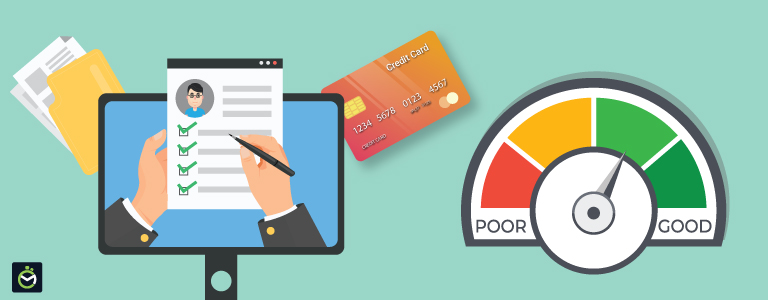When it comes to managing your personal finances, one crucial aspect that can significantly impact your financial well-being is your credit information. Your credit information, often referred to as myccinfo, plays a vital role in determining your creditworthiness and can affect your ability to secure loans, credit cards, mortgages, and even influence the interest rates you’re offered. In this comprehensive guide, we will delve into the world of personal credit information, understanding its significance, and learning how to manage it effectively to improve your financial standing.
Understanding Personal Credit Information
To begin, let’s clarify what personal credit information entails. It includes your credit history, credit score, and credit report. Your credit history showcases your past borrowing behavior, such as credit card payments, loan repayments, and any defaults or late payments. The credit score, represented by a numerical value, summarizes your creditworthiness, making it easier for lenders to assess your risk as a borrower. The credit report, on the other hand, is a detailed document containing your credit history and score, along with personal information.
The Importance of Maintaining Good Credit
Maintaining a healthy credit profile is crucial for several reasons. A good credit score allows you to access better financial opportunities, secure loans at lower interest rates, and enjoy higher credit limits. It also reflects positively on your financial responsibility and helps build trust with potential lenders. Whether you’re looking to buy a car, rent an apartment, or apply for a new credit card, a strong credit standing can significantly influence your approval chances.
Checking Your Credit Report Regularly
One of the essential steps in managing your personal credit information is to regularly check your credit report. You are entitled to receive a free credit report from each of the major credit bureaus – Equifax, Experian, and TransUnion – once every 12 months. Reviewing your report allows you to identify any errors or inaccuracies that may be negatively impacting your credit score. If you spot any discrepancies, promptly dispute them with the respective credit bureau to rectify the information.
Monitoring Your Credit Score
In addition to checking your credit report, keeping a close eye on your credit score is equally vital. Several online platforms and financial institutions provide free credit score monitoring services. Regularly monitoring your score enables you to track your credit health, spot any sudden drops, and take necessary actions to improve it. Remember, a higher credit score opens doors to better financial products.
Building Credit Responsibly
If you have a limited credit history or are recovering from past credit mistakes, building credit responsibly is an effective way to improve your credit standing. Begin with a secured credit card or a credit builder loan, both of which require a deposit as collateral. By making timely payments and keeping credit utilization low, you can demonstrate creditworthiness and gradually improve your credit score.
Paying Bills on Time
One of the most significant factors affecting your credit score is your payment history. Consistently paying your bills on time, including credit card bills, loan installments, and utility payments, has a positive impact on your credit score. Setting up reminders or automatic payments can help you avoid any accidental missed payments.
Managing Credit Utilization
Credit utilization, or the amount of credit you use relative to your credit limit, plays a crucial role in your credit score calculation. It is advisable to keep your credit utilization below 30% to maintain a healthy credit profile. Paying down existing debt and avoiding maxing out your credit cards are effective strategies to manage credit utilization.
Avoiding Opening Multiple Credit Accounts
While having a mix of credit types can be beneficial for your credit score, opening multiple credit accounts within a short period can raise concerns for lenders. Each credit inquiry made by a potential lender can slightly lower your credit score. Therefore, avoid unnecessary credit applications and only apply for credit when needed.
Limiting Credit Card Balance Transfers
Balance transfers can offer temporary relief from high-interest debts, but they should be used with caution. Frequent balance transfers can indicate financial instability to lenders and potentially lower your credit score. Use balance transfers wisely and have a plan to pay off the transferred amount within the promotional period.
Recognizing Signs of Identity Theft
Identity theft is a serious concern, and it can have a devastating impact on your credit. Regularly monitor your credit report for any suspicious activity and keep an eye out for unauthorized accounts or inquiries. If you suspect identity theft, take immediate action by contacting the credit bureaus and relevant authorities.
Seeking Professional Help if Needed
If you find managing your personal credit information overwhelming or encounter significant credit challenges, consider seeking help from reputable credit counseling agencies. These professionals can provide guidance, personalized advice, and actionable steps to improve your credit situation.
Conclusion
Effectively managing your personal credit information, or myccinfo, is essential for achieving financial stability and gaining access to better financial opportunities. Regularly reviewing your credit report, monitoring your credit score, paying bills on time, and using credit responsibly are key practices to enhance your creditworthiness. By implementing these strategies and staying vigilant against potential threats like identity theft, you can take control of your credit health and pave the way for a brighter financial future. Remember, good credit management is a journey, and small, consistent steps can lead to significant improvements over time.










